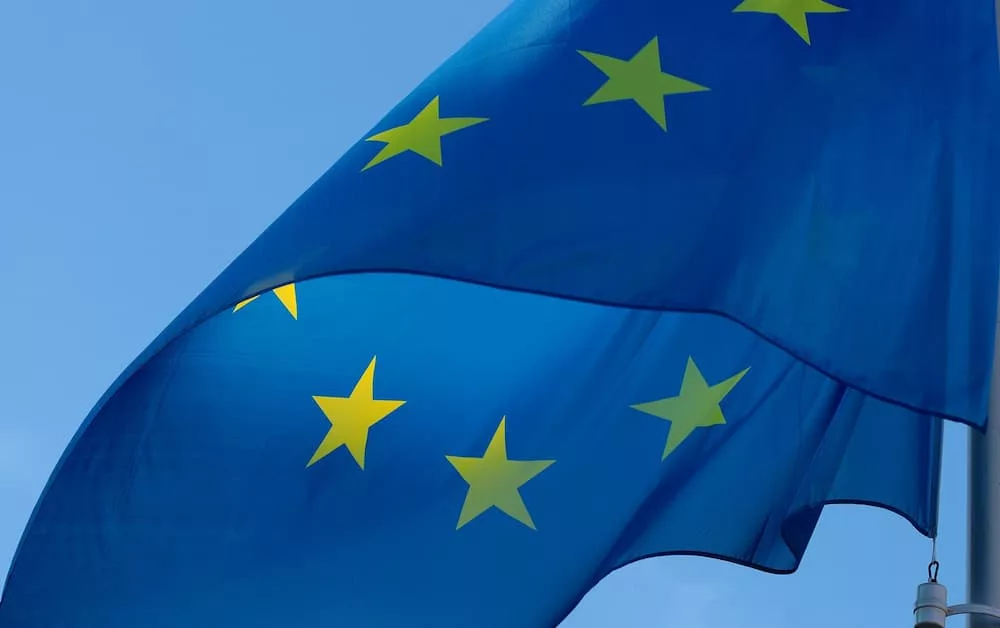Introduction
The European Digital Markets Act (DMA) is a landmark piece of legislation aiming to regulate large online platforms and ensure fair competition in the European Union (EU) digital markets. While its primary focus is on competition and market investigation, the DMA has significant implications for user privacy and consent management. The Digital Markets Act (DMA) became effective on 1 November 2022. However, its provisions and regulations became applicable on 2 May 2023, two months after it entered into force. This marked the beginning of its implementation and enforcement, impacting large companies designated as gatekeepers in the digital market. The DMA aims to address competition concerns, promote fair competition, and ensure a more open and transparent digital market within the European Union.
The European Digital Markets Act (DMA)
The European Digital Markets Act (DMA) is a significant regulatory framework introduced by the European Union (EU) to address competition concerns and promote fair and open digital markets. Here’s an overview of what the DMA entails:
Objective criteria: The DMA establishes specific criteria for identifying large online platforms as “gatekeepers.” These gatekeepers are digital companies that wield significant market power and influence.
Regulation of gatekeepers: Gatekeepers are subject to more stringent regulations to prevent market abuse and ensure fair competition. This includes measures related to data sharing, interoperability, and access to essential services.
Fair competition: The DMA aims to level the playing field for smaller businesses and promote fair competition in the digital space by preventing gatekeepers from engaging in anticompetitive practices.
Data sharing: Gatekeepers are required to share certain data with business users to foster innovation and competition.
Interoperability: The DMA promotes interoperability, making it easier for users to switch between different services and platforms.
Access to essential services: It ensures that business users have access to essential services provided by gatekeepers, such as advertising services.
Transparency and reporting: Gatekeepers must be transparent about their practices and report on various aspects of their operations.
Sanctions: The DMA includes provisions for imposing substantial fines on gatekeepers who fail to comply with its regulations.
The DMA is a response to the growing dominance of large tech companies in the digital market and seeks to create a more competitive and user-friendly digital environment. It impacts various aspects of the digital economy, including data privacy, competition, and innovation.
Defining core platform services
Core platform services play a vital role in the DMA’s scope, as they are the foundation of digital platforms that have become an integral part of our lives. These services include online search engines, social networking services, intermediation services, and video-sharing platform services, among others. Understanding the significance of these services is crucial to comprehending the DMA’s impact on user privacy and consent management, as they are often the channels through which personal data is collected and processed. With the DMA’s regulations, digital platforms will have to ensure that they comply with the highest standards of privacy and consent management, which will ultimately benefit users and build trust in the digital economy.

Gatekeepers’ role in data processing
Gatekeepers play a crucial role in managing and processing vast amounts of personal data. They collect and store data on users, which is then utilized for various purposes, such as targeted advertising. However, with the rise of privacy concerns and data breaches, it has become increasingly important to ensure that gatekeepers handle this data responsibly and with respect to user privacy. In this context, the DMA introduces measures to regulate the collection, storage, and use of this data, promoting a safer and more transparent digital ecosystem for users.
DMA and data sharing
The Digital Markets Act (DMA) is a regulatory framework that sets out certain restrictions on how gatekeepers can share personal data with third-party organizations. This is an essential aspect of the DMA’s approach to data protection and ensuring user privacy. By limiting the sharing of personal data, the DMA aims to prevent any abuse of power by gatekeepers, who have significant control over the digital markets. This, in turn, allows for a more level playing field for businesses and consumers alike. The DMA’s restrictions on data sharing are a crucial step towards a more transparent and fair digital economy.
Valid user consent in online advertising
Online advertising has become a major source of revenue for many gatekeepers in recent years. However, with the implementation of the Digital Markets Act (DMA), gatekeepers are now required to obtain valid user consent before collecting and using personal data for targeted advertising. This new requirement not only strengthens user control over their data but also helps to ensure that gatekeepers are operating in a fair and transparent manner. By requiring gatekeepers to obtain user consent, the DMA is helping to create a more level playing field for all online advertisers, while also protecting the privacy and personal data of users.
Consent management platforms under the DMA
Consent management platforms have become increasingly important in the digital landscape as new data protection laws and regulations have emerged. These platforms offer gatekeepers the ability to manage user preferences and ensure compliance with the latest regulations, such as the DMA’s requirements for user consent. By providing a centralized system for managing consent, these platforms allow gatekeepers to more easily respond to user requests and maintain transparency in their data collection and processing practices. Overall, consent management platforms are essential tools for any organization that aims to prioritize user privacy and data protection.
Relevant core platform services and consent management
Proper consent management is a critical aspect of every core platform service under the DMA. However, each service has its own unique considerations and nuances that need to be taken into account for effective compliance. It is important to have a comprehensive understanding of the intricacies of each core platform service to ensure that the consent management process is in line with the regulations and requirements set forth by the DMA. With a clear understanding of these nuances, businesses can ensure that they are operating within the legal framework and protecting their users’ data privacy rights.

The impact of the DMA on user privacy
The Digital Markets Act (DMA) is a piece of legislation proposed by the European Union to regulate digital markets and protect user privacy. Its primary goal is to ensure that gatekeepers – platforms with significant market power – do not abuse their position to unfairly advantage themselves over smaller competitors. Imposing strict rules on gatekeepers enhances the level of data protection and privacy for EU users, as these companies are often responsible for collecting and processing vast amounts of personal data. By creating a level playing field and requiring transparency and accountability, the DMA seeks to promote competition, innovation, and ultimately, better outcomes for consumers.
Data privacy laws and the DMA
The DMA is a new regulation that aims to regulate the digital market and ensure fair competition among digital service providers. It also aligns with existing data privacy laws, including the General Data Protection Regulation (GDPR), which sets out rules for the collection, use, and storage of personal data. The DMA reinforces the principles of data protection established by these laws and aims to protect consumers’ privacy and prevent unfair practices by digital service providers. The regulation seeks to promote a level playing field for all digital service providers by imposing obligations on large companies that have significant market power and by ensuring that the same rules apply to all players in the digital market.
Digital Market Act and user-centric digital ecosystem
The DMA, or Data Management Association, is a forward-thinking organization that strives to promote a user-centric digital ecosystem. This ecosystem aims to provide users with greater control over their personal data, including how it is collected, processed, and used by companies. By putting users first, the DMA seeks to create a more transparent and equitable digital landscape that benefits both businesses and consumers alike. Through its efforts, the DMA is helping to shape the future of data management and privacy practices and is leading the way toward a more responsible and sustainable digital future.
Consent management challenges
The Data Protection Impact Assessment (DPIA) and the Data Protection Officer (DPO) requirements under the DMA have set a high standard for consent management, but they also pose significant challenges for gatekeepers who are responsible for implementing and maintaining compliant systems. The complexity of the rules, the need for constant monitoring, and the potential for legal liability in case of non-compliance are just a few of the challenges that organizations face in this regard. Nonetheless, it is crucial for gatekeepers to prioritize compliance with the DMA in order to protect the privacy and personal data of their users.
Real-time access to user data
As per the DMA regulations, gatekeepers are required to provide real-time access to user data. This gives users the ability to monitor and control how their data is processed, ensuring that they have complete transparency into the usage of their personal information. This step is crucial in building trust and confidence among users, as it allows them to make informed decisions about how their data is being utilized.

Ensuring fair competition
The Digital Markets Act is a crucial legislation that aims to promote fair competition in the digital market. By ensuring that digital gatekeepers such as tech giants do not abuse their dominant position to the detriment of smaller competitors, the DMA indirectly contributes to better user privacy and consent management. This is because fair competition prevents gatekeepers from exploiting users’ data without their consent, which is a key aspect of ensuring user privacy and data protection in the digital age. Overall, the DMA serves as an important tool in protecting consumers and promoting a fair and competitive digital marketplace.
User control and prior consent
The DMA aims to empower users by giving them greater control over their personal data. Prior consent is a central element in this user-centric approach, which ensures that individuals have the right to determine how their data is processed and used. By prioritizing privacy and consent, the DMA is taking a crucial step toward a more transparent and equitable digital landscape.
The impact of the DMA on large online platforms
As per the new regulations laid out by the DMA, large online platforms, which are often considered as gatekeepers, have to modify their business practices to ensure compliance. These modifications would primarily focus on user privacy and consent management and would require significant changes in the way these platforms operate. With the increasing focus on data protection and privacy, it is imperative for these platforms to take the necessary measures to ensure that user data is not misused or mishandled in any way. Therefore, it is essential for these platforms to take proactive steps toward implementing the new regulations and ensuring that their business practices align with the new requirements.
Impact on web browsers and operating systems
The digital ecosystem is made up of various components, including web browsers and operating systems. These components are crucial in determining how users access online services. In this context, the DMA’s influence extends beyond just regulating online services to also encompass these fundamental components of the digital landscape. As such, the DMA has the power to shape the way users interact with the internet and the services offered therein. It remains to be seen how the DMA will exercise this influence and what impact it will have on the digital ecosystem as a whole.
Data portability and user privacy
The DMA has taken a significant step forward by introducing data portability measures that empower users to move their data from one service provider to another. This enhances user control over personal information, allowing them to manage their data in a way that suits their preferences. With the DMA’s data portability provisions, users can easily transfer their data between service providers without losing their information. This promotes healthy competition among service providers, as users can effortlessly switch to another provider that better suits their needs while retaining their data. Overall, the DMA’s data portability measures are an essential step towards creating a user-centric data ecosystem that prioritizes user control and privacy.
Conclusion
The DMA is a significant step toward enhancing user privacy and consent management in the digital age. It sets the stage for the European Union’s more transparent, user-centric, and fair digital ecosystem. The Digital Markets Act profoundly impacts user privacy and consent management within the EU. It establishes rules and obligations for gatekeepers and strengthens data protection. Understanding the DMA’s provisions and their implications is essential for both online platforms and users in the European Union.




